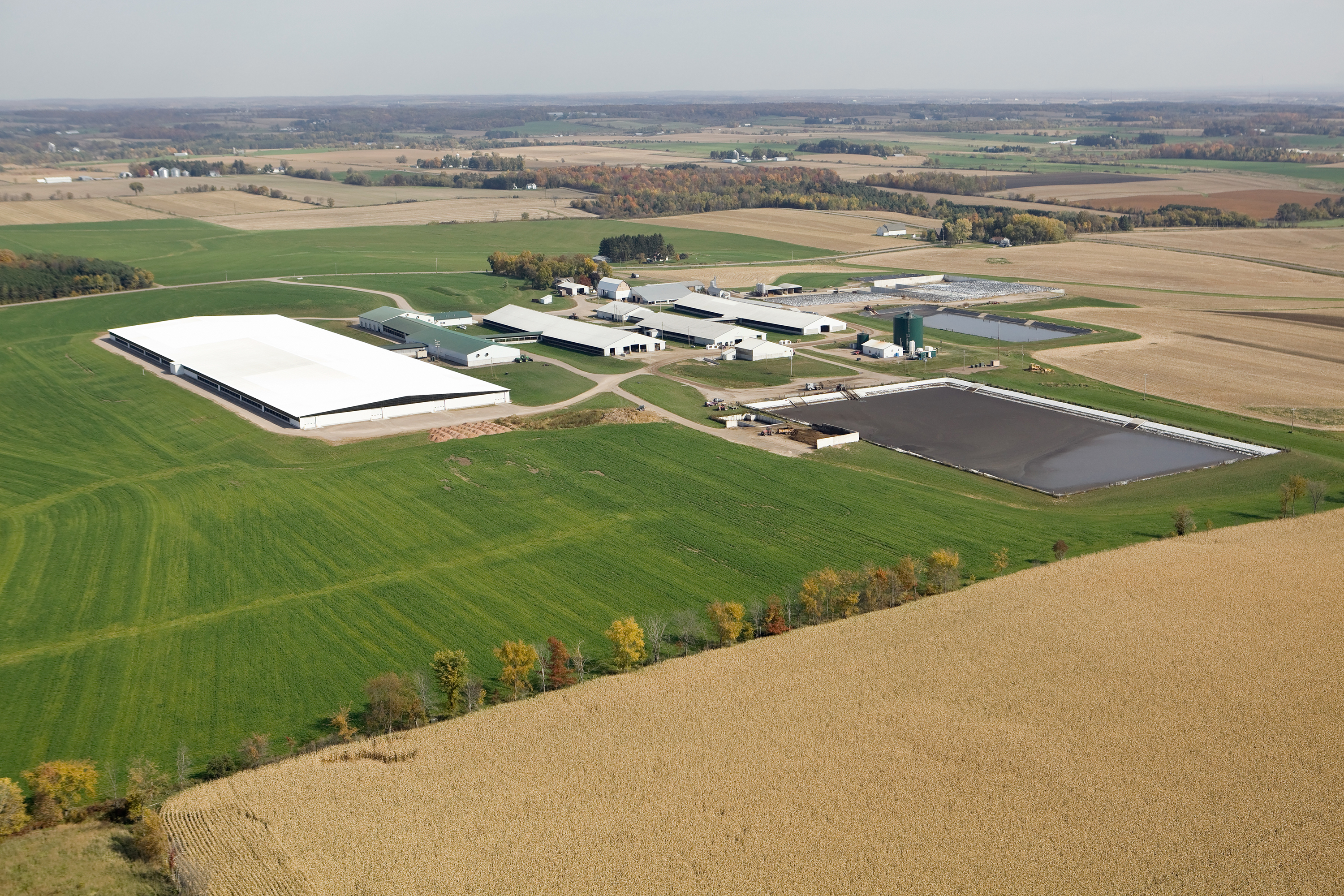Twenty-five years ago, I would have told you that topics like self confidence and insecurities were a bunch of fluff. However, I’ve been through a lot and can tell you that it is the soft issues that become hard problems in farming. What takes three generations to build up can fall apart within three minutes because of these warm fuzzy feelings we overlook.
Instead of finger-pointing within a mediation session, it is important that your family adopts practical habits that can make everyone feel confident in themselves and for them to know that love is unconditional. Create a business environment where everyone is emotionally walking on solid ground, not quicksand. There is a lot of great production advice within this magazine that you should implement, but unless your partnership has a solid foundation of trust, nothing else truly matters.
Farm families live intertwined lives where parents spend their lifetime making sacrifices for their kids' future. The side effect of such an intense personal investment into someone else’s well-being is that you lose your personal identity and lives get intertwined. In my previous article titled “Stop walking on eggshells” which ran in the Oct. 1, 2023 issue of Progressive Dairy, I spoke about borderline personality disorder, which is a personality disorder similar to narcissism focused on the fear of abandonment. A lot of “off the wall” irrational behavior that happens during succession planning can be explained by this disorder because fears and emotions override rational behavior. Experts argue whether this disorder is nature or nurture, but I believe it is mostly nurture. The culture of a family farm can create a toxic environment that sometimes brings out the worst in people during stressful times like succession. I believe that the key is to provide solid ground (not quicksand) for everyone to walk on using common-sense business practices to create a low-stress business environment.
Here are some simple rules of thumb every farm should adopt to avoid problems.
Have a written business plan
Assume that milk prices are going to be low (i.e., $14 per cwt) for the next seven to 10 years. What does your breakeven price have to be? If Dad’s dream is for every kid to be able to come home to join the farm, what is the realistic plan for how the farm is going to be able to support so many households within a decade? How do you have to restructure your business so you can meet debt obligations and support the number of households within your family by the farm? How do you realistically have to reorganize your business to be able to survive beyond 2030? Don’t do this on the back of a napkin, but get it in writing so everyone can see it and make sure it is bulletproof.
Have a transparent budget
Have a written “shopping list” of equipment you plan to purchase and projects you want to invest in over the next 12 months. Only review/tweak this budget every 90 days on a set date, not based on the emotional whims (ex., love bombing) of the moment. Your family might have realistic and detailed pro forma budgets that the family discusses together monthly. Everyone should be on board with the forecasted financial transactions, and your family should come up with a shopping list of equipment to purchase or projects for business improvement. Team decision-making using a formal budgeting process stunts manipulation by someone with borderline personality disorder and minimizes sibling rivalry. It ensures that decisions aren’t made sporadically and based on emotion but based on what the farm needs.
Hold off on major financial investments
Many farmers pour concrete or make major financial investments the year a son or daughter comes home to farm. I’d hold off on any major financial purchases during the first three years of a son or daughter returning home to the farm and make sure that the son or daughter loves farming as a career before taking on long-term debt. I’d also first make sure your family can work together harmoniously and professionally before taking on long-term debt as well. Don’t trap kids into someone else’s dreams. Make it easy for them to exit the partnership on good terms if they don’t like farming or your family can’t work well together.
Create a written succession strategy
After the successor has proven themselves to be a worthy partner over a three-year trial period, have a written succession strategy. This doesn’t mean equity has to be gifted upfront, but have a clear written understanding about how a son or daughter can fairly earn equity in the business over 30 years if they contribute to the farm’s growth and success. Don’t let this be an emotionally charged decision based on whom Mom loves most on her deathbed. That creates anxiety which leads to both a dysfunctional farm business and a dysfunctional family.
Set monthly meetings
Have a formal monthly meeting to problem-solve production issues and discuss ideas to improve the efficiency of the farm. Don’t just have your daughter come to the table with ideas and have Grandpa take these ideas as criticism of past management decisions. Have everyone come to the table with ideas to improve farm efficiency so that it is perceived as team brainstorming and problem-solving. If Grandpa is putting out ideas at the same time, then it’s a team problem-solving and not perceived as a kid criticizing past management decisions, which is then taken personally by an emotionally sensitive patriarch who takes pride in what he does.
Make it OK to talk about weaknesses
Your family has to make it OK for all partners to not feel vulnerable and be able to admit to weakness. There is no blaming or finger-pointing in a true team. What partners must do is be able to admit to themselves their shortcomings and have an open forum to easily and constructively problem-solve how these issues are going to be dealt with so that they don’t reoccur, instead of shifting blame and taking zero responsibility. By all partners learning to constructively problem-solve and self-improve, instead of imploding and feeling ashamed when problems occur, everyone can develop the necessary confidence that will problem-solve today’s issues and solve future challenges. Instead of pretending to be perfect, they will learn to embrace imperfections by better problem-solving and each partner can grow out their emotional insecurities that cause the business to be unstable and chaotic.
The first step to building this culture is to identify weaknesses in your farm’s culture right now. Identify what type of business culture is going to make any family business successful and what behaviors are self-destructive. What are the qualities of a good team player? Instead of pointing fault in each other, identify negative behaviors that are shared between partners and develop good habits to change them. As a family, identify three common family bad habits (i.e., shifting blame onto others) and work on them over a fiscal quarter by holding each other accountable using something like a “swear jar.” By setting team goals on how you want to evolve your farm’s culture from good to great, self-improvement becomes a group effort and partners (parents or kids) won’t feel singled out or vulnerable.
Journal regularly
Have each partner write out three key performance indicators every morning in three different categories:
- Production changes. Example: Get all employees trained to use the same milking procedures consistently in order to improve milk production by 5-plus pounds per cow per day.
- Team cultural changes. Example: Accountability. Say what you’re going to do and then do what you say.
- Personal habits. Example: Be at the barn on time, every time. Don’t be late for chores.
Write out these goals as you put your work boots on and then score how you’re doing when you take your boots off at the end of the day. How did you do in implementing these key performance indicators? Have a sheet of paper adjoining where the partner can write out solutions to make sure that if you didn’t hit your goal (i.e., wasn’t at barn on time), you write out solutions so it doesn’t happen again (i.e., make sure alarm is always working). By writing out solutions to problems that occur, the person with borderline personality disorder doesn’t internalize and feel ashamed by issues; they feel they are making personal improvement. By setting personal improvement goals, the partner with borderline personality disorder tendencies will embrace self-improvement instead of feeling vulnerable or ashamed of personal weaknesses. They’ll realize that while they make mistakes, it is a rare, not an everyday occasion and will make sure that it’s not reoccurring. This is critical for them to develop self-confidence and self-esteem. Only when you get them to face their problems head-on (not deflect or avoid them) will your farm get rid of this toxic mindset.
Twenty-five years ago, I would have thought this to be the silliest suggestion for a farmer to write out his goals daily. However, this is what successful people like Warren Buffet do and it’s why they are successful. Scientific studies have shown that you are 10 times more likely to accomplish your end goals if you write them out daily. Although you are busy, Warren Buffet is way busier. Why does Warren Buffet make this a priority to invest 10 minutes of his day writing out his goals? Why waste 10 hours of your day if you are not going to accomplish your goals in 10 years’ time? If something makes it 10 times more likely your 10-hour day is going to amount to a long-term goal, why not do it?
Never make love conditional
Make sure your family member knows that regardless of whether someone chooses to farm or not, they are still loved. Don’t build relationships on quicksand but on solid ground where your love is unconditional. Your family member with borderline personality disorder may never understand this because of the complexity of their upbringing, but ultimately this is your choice that’s in your control.
I strongly believe in the need for a farm family to adapt these eight habits in a practical way that fits within the cultural constraints of a working family farm. It helps minimize borderline personality disorder tendencies but also creates a culture that can withstand the test of time. I’m convinced I’d be still farming with my dad today if we had applied these principles.







